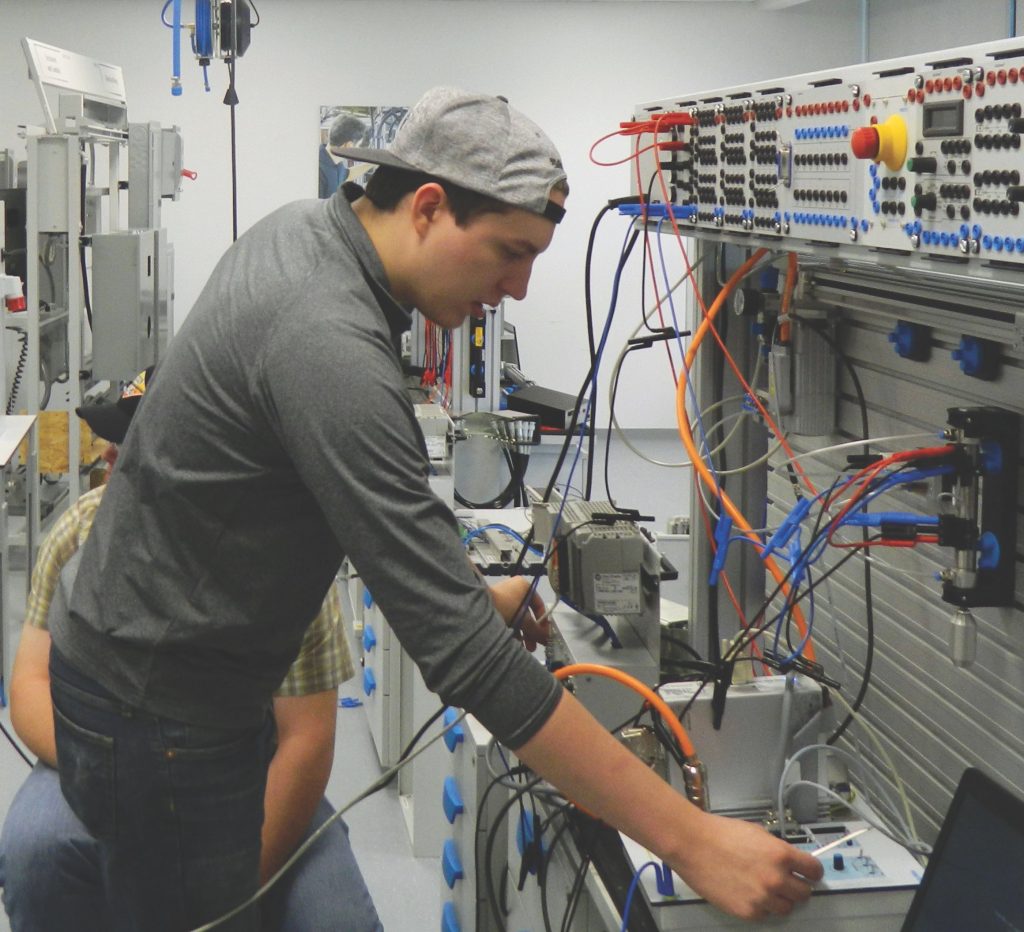The average consumer has likely never heard of Festo, a German-based company with U.S. headquarters in Mason, but virtually everyone feels its effects. Producing over 30,000 standard parts used in manufacturing machinery, Festo supplies pieces for systems that make our world go ’round—from cars and food to medical devices and amusement park rides. “We’re several steps removed from the consumer, so most people wouldn’t ever know us,” says Sean O’Grady, director of sales operations.
Founded in 1925, Festo has come a long way from its woodworking origins. Its North American headquarters launched on Long Island in 1972 and moved to Mason in 2015 following a national search. An expansion in 2018 tripled the building’s footprint.
Today, with 250 employees and plenty of elbow room, the local location is a hub of innovation. Investments in high-tech automation have yielded vast capabilities in what O’Grady calls “mass customization,” which allows for product modifications to suit specific customer needs. (One particular product can be configured in 10 to the 780th ways.)
This uptick in mass customization has increased Festo’s reliance on local companies for raw materials, rather than shipping them from overseas. “All of these elements, when taken together, allow our output to rise more quickly than our costs,” says O’Grady, “but the real power is in being able to help our customers quickly solve a wider variety of manufacturing challenges.”

That said, the topic of automation tends to raise eyebrows. What happens to human jobs while automation is making the industry more efficient? Should we worry that manufacturing workers will be edged out of their livelihoods? The short answer is no, says O’Grady, who compares manufacturing’s automation evolution to that of ATMs. While it’s true that ATMs have decreased the need for bank tellers, the automation of money withdrawal enabled the banking industry as a whole to expand in scope and sophistication. “Today there are more workers in banking than ever before,” he says.
Likewise, Festo Didactic, the company’s training arm, is preparing people for jobs of the future by teaching skills that will remain relevant for decades. From two-day courses to full apprenticeship programs, Festo offers product and technology training to equip the next generation of manufacturing professionals and help them climb beyond basic machine-like tasks. Classes are vendor-neutral, meaning people aren’t pigeonholed into Festo products and are instead equipped to operate new technology on various platforms.
For this forward-thinking plan to work, however, employers, community colleges, and government agencies need to step up, says O’Grady. “Jobs that require some technical skills are going unfulfilled, and we’re chomping at the bit to deliver that capacity to folks. It’s very rewarding and also very challenging to see how much opportunity is going unmet.”


